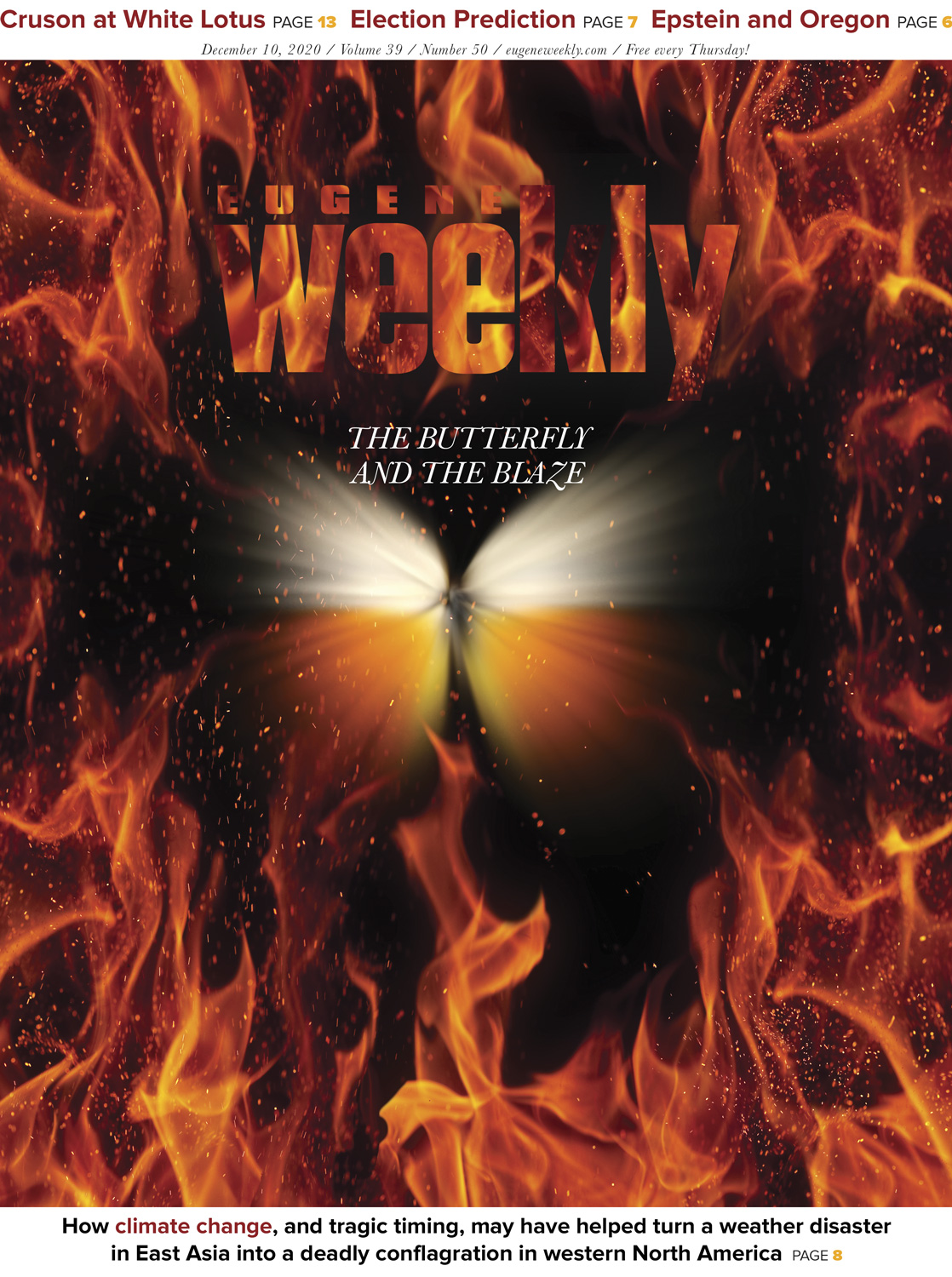The University of Oregon announced on May 10 that all students, faculty and staff will be required to take the COVID-19 vaccination — with the usual medical and non-medical exceptions — in order to attend and/or work on campus. The UO’s decision came days after other Oregon institutions and weeks after the nation’s largest higher education system (the California State University and University of California) made COVID-19 vaccines mandatory for the upcoming school year. But, hey, the UO’s announcement is better late than absent.
• On Sunday night, several Eugene City Councilors’ homes, including Emily Semple, Claire Syrett and Alan Zelekna, were vandalized with spray-painted anti-police slogans. Semple told Eugene Weekly that “defund EPD” and “fund CAHOOTS” were written on the side of her house with a banner that said “Your community is watching you.” Her stairs and mailbox were also spray-painted. She says the tactic was not effective. “If you want me to vote one way come and talk to me,” Semple says. “I don’t feel particularly intimidated.”
• Last week’s Slant column annoyed a reader who left a profanity filled voicemail with misinformation about COVID vaccines (or as he called them, “Nazi-vaccines”) and threatening to come “put a foot up your ass.” Thank you, sir, but we will continue to endorse science over conspiracies and threats.
• Eugene Weekly took 2020 off from our annual Summer Guide issue due to COVID. We’re bringing it back, COVID-safe, for 2021, so if you have a summer event that’s fun or informative and is not going to be a super-spreader, submit it ASAP to our online calendar at Calendar.EugeneWeekly.com/Cal or Cal@EugeneWeekly.com.
• “The Butterfly and the Blaze,” which ran in Eugene Weekly Dec. 10, 2020, took first place for science writing for 2020 from the American Society of Journalists and Authors, the largest professional organization of independent nonfiction writers in the U.S. The story by Matthew LaPlante and Jacob Stuivenvolt Allen detailed butterfly effect connections between typhoons in the western Pacific and last summer’s devastating fires in Oregon. “This story is so skillfully put together, with a compelling narrative that conveys a complicated scientific topic that has significant implications as we move deeper into the climate crisis,” the judges wrote. We happily agree.
